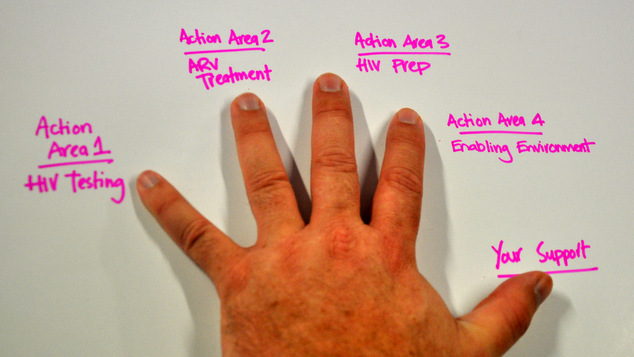 The Action on HIV! – Melbourne Declaration 2012 has this morning announced and outlined its plans to dramatically reduce the transmission of HIV in Australia by 50%. With the transmission of HIV steadily on the increase in 2011, a call for drastic action has resulted in a national four point plan.
The Action on HIV! – Melbourne Declaration 2012 has this morning announced and outlined its plans to dramatically reduce the transmission of HIV in Australia by 50%. With the transmission of HIV steadily on the increase in 2011, a call for drastic action has resulted in a national four point plan.
Downfalls in current HIV prevention were listed before proposing the plan, issues discussed included:
- No rapid HIV tests licensed for use in Australia
- Dispensing restrictions for people with HIV
- Financial disincentives to taking HIV treatments
- The inability for doctors to prescribe antiretroviral drugs to prevent HIV infection
- Criminal laws against sex workers and needle users that undermine the public health approach
With all of this in mind, the Melbourne Declaration is proposing national resolutions that are designed to drastically address any increase of infection, as well as reducing stigma. The four points formulated were introduced today, they consist of
1- Substantially increasing access to and up taking voluntary HIV testing in Australia
2- Enhancing access to and up taking antiretroviral treatment of HIV
3- Making HIV pre-exposure prophylaxis available, and
4- Strengthening the partnership response and enabling environment
Groups considered most at risk in regards to the threat of spreading HIV include gay men, sex workers, Aboriginal and Torres Strait Islanders, as well as people who inject drugs. The implementation of the plan has proposed quick and dramatic resolution – a spokesperson from the Melbourne Declaration discussed the urgency of immediate action –
‘In 2014, the International AIDS Conference will be held in Melbourne and the world’s eyes will be upon us. Immediate action, leadership and commitment to the actions outlined below will galvanise Australia’s HIV response and provide new tools to engage affected communities, increase the uptake of voluntary HIV testing, get people access to treatment and prevent new infections. We declare that the following actions must be taken urgently!’
The new CEO of the WA AIDS Council, Andrew Burry, spoke of how the new policies will hopefully reduce stigma around the issue – ‘Stigma comes from issues that are not being seen by the mainstream community as a mainstream issue, this leads to marginalisation’.
Although 2011 showed a spike in the spread of HIV, Barry insists this isn’t a trend, pointing out that the five years previous to 2011 showed relative stability.
Nadine Walker





